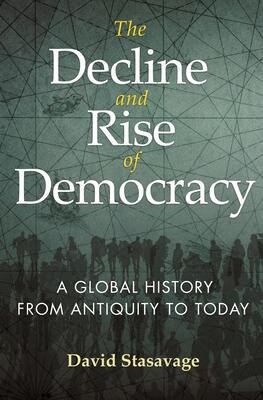
The Mystery of the Kibbutz: Egalitarian Principles in a Capitalist World
par
Ran Abramitzky
Pas encore d'évaluations
Mystery
History
Format
Kindle
Pages
355
Langue
Anglais
Publié
Feb 13, 2018
Éditeur
Princeton University Press
Description
In a world dominated by capitalist ideals, the kibbutz movement stands as a remarkable anomaly. This work explores the resilience of the kibbutz system, illustrating how communities built on egalitarian principles managed to thrive amidst economic contradictions. Readers are invited to delve into the historical context of kibbutzim, which emerged as a response to social inequalities and aimed for communal living and shared resources.
The author probes the intricate balance these communities maintained between their utopian ideals and the realities of a market-driven society. Through engaging narratives and insightful analysis, the book reveals the challenges faced by kibbutzim as they navigated changing socio-economic landscapes. It portrays the evolution of these communities, offering a nuanced understanding of their adaptability.
Moreover, the text delves into the philosophical underpinnings of the kibbutz ideology, questioning how such a radical social structure could survive, and even flourish, where traditional capitalist systems often falter. It encourages readers to reflect on the implications of mutual aid, cooperation, and shared responsibility in today’s world.
Ultimately, this examination serves not only as a historical account but also as a contemplation of the values that can be extracted from the kibbutz experience. It invites discussions on sustainability and the potential for different economic models to coexist in a broadly capitalist framework.
The author probes the intricate balance these communities maintained between their utopian ideals and the realities of a market-driven society. Through engaging narratives and insightful analysis, the book reveals the challenges faced by kibbutzim as they navigated changing socio-economic landscapes. It portrays the evolution of these communities, offering a nuanced understanding of their adaptability.
Moreover, the text delves into the philosophical underpinnings of the kibbutz ideology, questioning how such a radical social structure could survive, and even flourish, where traditional capitalist systems often falter. It encourages readers to reflect on the implications of mutual aid, cooperation, and shared responsibility in today’s world.
Ultimately, this examination serves not only as a historical account but also as a contemplation of the values that can be extracted from the kibbutz experience. It invites discussions on sustainability and the potential for different economic models to coexist in a broadly capitalist framework.
Avis
Aucun avis pour le moment
Soyez le premier à donner votre avis sur ce livre et partagez vos pensées
Ajouter le premier avisJournal de lecture
Aucun journal de lecture trouvé
Commencez à suivre vos progrès de lecture pour voir les journaux ici
Ajoutez votre premier journal de lectureNotes
Journal des transactions
Aucun journal de transactions trouvé
Commencez à suivre vos transactions de livres pour voir les journaux ici
Ajoutez votre premier journal de transactions


















